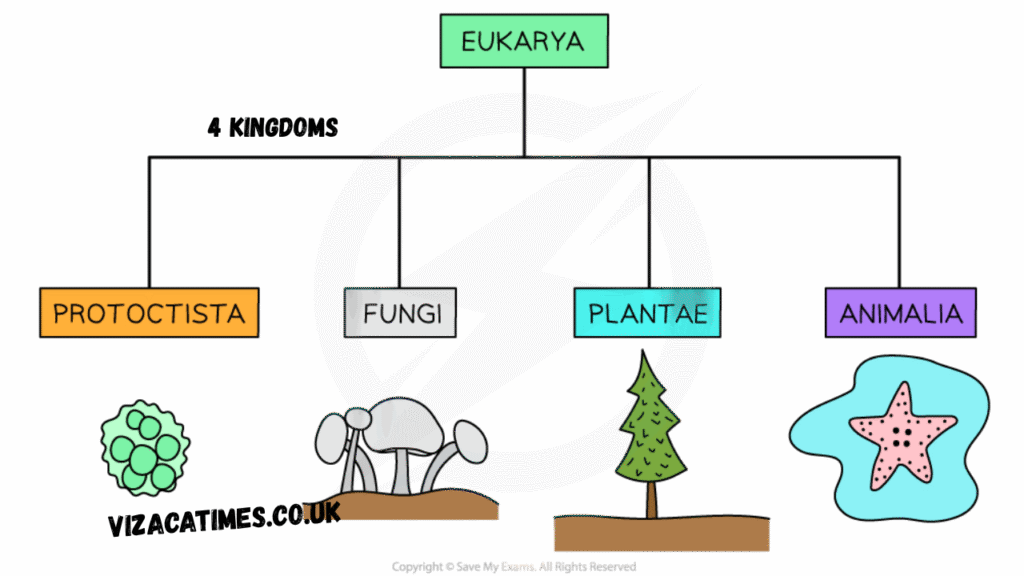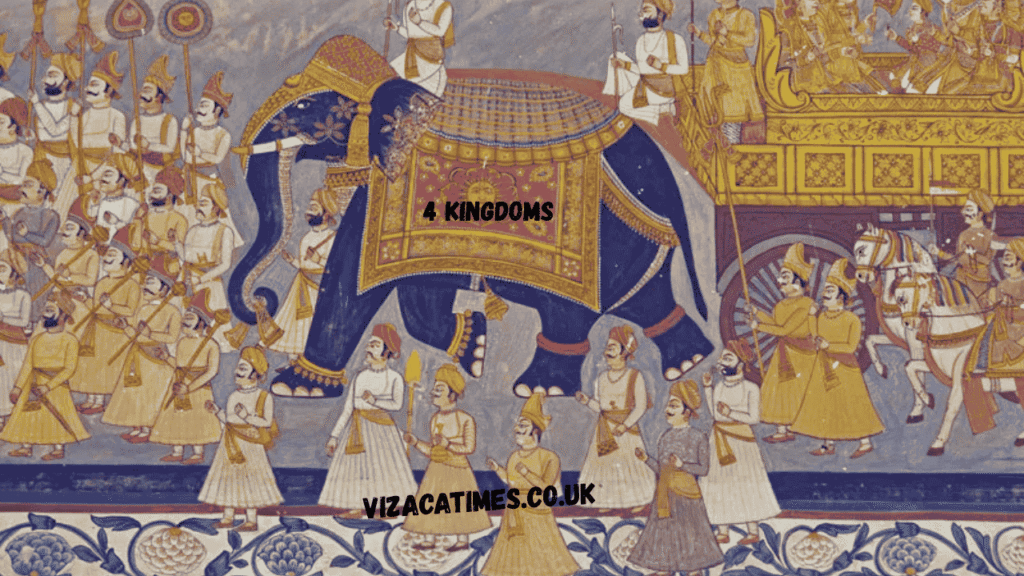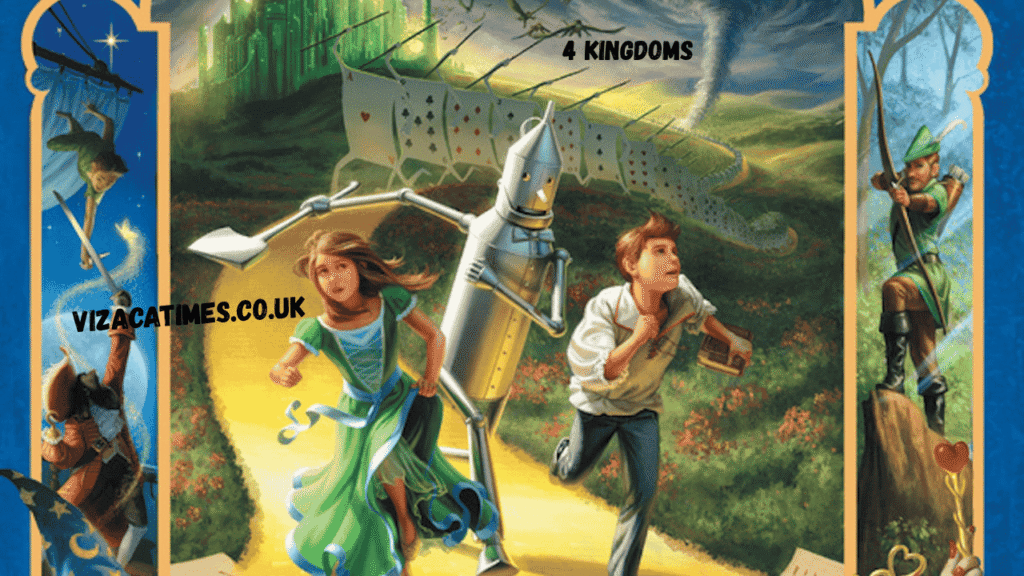Exploring the World of 4 Kingdoms, ?? – A Comprehensive Insight

The term “4 kingdoms” holds unique significance across various fields, from biology to historical narratives and even in fantasy literature and games. Understanding the different contexts in which “4 kingdoms” appear can open doors to learning about life’s classification, historical power dynamics, cultural stories, and creative gaming experiences. This comprehensive article on “4 kingdoms, ??,” explores these diverse aspects with clear headings, ensuring you gain a rich, layered understanding of the term without confusion.
Understanding the Biological Context of 4 Kingdoms, ??

One of the most common uses of “4 kingdoms” is in the realm of biological classification. Before the modern five or six-kingdom systems, biologists used a four-kingdom system to categorize life on Earth, helping learners grasp the major distinctions in living organisms.
The four kingdoms in this system typically included:
- Protista – Single-celled organisms with a nucleus, such as amoeba and algae.
- Fungi – Non-photosynthetic organisms like mushrooms and yeasts.
- Plantae – Multicellular, photosynthetic organisms including trees, shrubs, and grasses.
- Animalia – Multicellular, heterotrophic organisms, encompassing all animals from insects to mammals.
The “4 kingdoms” system provided a structured yet accessible entry point for biology students, allowing them to understand life’s diversity without being overwhelmed by complex subdivisions.
4 Kingdoms, ?? in Historical Narratives

“4 kingdoms” also appear in many historical and religious narratives, often symbolizing different empires or phases of civilization. For instance, in some historical texts and prophecies, the concept of four kingdoms represents stages of human rule over the Earth, each with its unique attributes and destiny.
In ancient civilizations:
- The Babylonian Empire symbolized wealth and golden strength.
- The Medo-Persian Empire represented resilience and structured governance.
- The Greek Empire was renowned for philosophy and cultural spread.
- The Roman Empire showcased engineering prowess and legal systems.
These four kingdoms shaped the world’s political, cultural, and social foundations, influencing architecture, languages, governance, and traditions that are still evident today.
4 Kingdoms, ?? in Fantasy Literature and Storytelling

The concept of “4 kingdoms” is widely used in fantasy literature and storytelling to build compelling worlds divided into four distinct regions, each with its own rulers, cultures, landscapes, and challenges. This division allows writers to create tension, alliances, rivalries, and quests within their stories, enriching the narrative and immersing readers in layered fictional worlds.
Common themes include:
- Elemental Divisions: Fire, Water, Earth, and Air kingdoms, each controlling specific natural powers.
- Moral Divisions: Kingdoms representing different philosophies or alignments, such as justice vs. chaos.
- Geographical Divisions: Distinct territories like mountain realms, forest realms, desert lands, and ocean territories.
The idea of “4 kingdoms” in fantasy helps in crafting engaging plots while providing readers with clear structures to follow, ensuring clarity even in complex stories.
4 Kingdoms, ?? in Games and Interactive Media
In the gaming world, “4 kingdoms” often form the core structure of strategy, RPG, and world-building games. Players might be tasked with choosing one kingdom to align with, each offering unique skills, resources, or technologies, adding strategic depth and replayability to the game.
For example:
- A kingdom of warriors prioritizes strength and aggressive expansion.
- A kingdom of mages focuses on wisdom and magical power.
- A kingdom of merchants thrives on trade and diplomacy.
- A kingdom of artisans excels in crafting and fortification.
This structure enhances player engagement, making “4 kingdoms” a popular mechanic in board games, video games, and mobile strategy games.
Symbolic Interpretations of 4 Kingdoms, ??
Beyond concrete categories, “4 kingdoms” often symbolize broader human experiences and philosophies, becoming metaphors in cultural and spiritual discussions.
- Mind – representing intellect and decision-making.
- Body – representing physical strength and health.
- Spirit – symbolizing faith, beliefs, and inner strength.
- Emotion – capturing the realm of feelings and intuition.
This symbolic framework allows individuals to reflect on the harmony between different aspects of themselves, promoting holistic growth and balance in life.
Educational Importance of Learning About 4 Kingdoms, ??
Exploring “4 kingdoms” in these various contexts encourages multidisciplinary learning, helping students connect biology, history, storytelling, and personal development seamlessly.
Benefits include:
- Developing structured thinking through classification.
- Understanding historical developments and their impacts on modern society.
- Stimulating creativity through storytelling and world-building.
- Fostering strategic thinking through games using “4 kingdoms” frameworks.
- Encouraging self-reflection by applying symbolic interpretations to personal development.
Whether in classrooms, creative projects, or self-learning, “4 kingdoms” provide a gateway to deeper exploration and interdisciplinary education.
Why the Concept of 4 Kingdoms, ?? Remains Relevant
Despite modern classifications in science and evolving storytelling methods, “4 kingdoms” remains relevant because of its simplicity, clarity, and versatility. It allows learners and enthusiasts to:
- Grasp complex systems easily by breaking them into four clear parts.
- Explore cultural narratives and legends with engaging structures.
- Build systematic worlds in stories and games.
- Develop a balanced view of personal growth using symbolic frameworks.
The ongoing use of “4 kingdoms” showcases its timeless utility across different fields and cultures, adapting to changing needs while retaining its foundational value.
Final Thoughts on 4 Kingdoms, ??
“4 kingdoms, ??,” embodies a term rich with layered meanings, whether in the realm of biology, history, fantasy, games, or symbolic life frameworks. Its use across various disciplines shows its strength as a tool for organization, creativity, and learning.
Exploring “4 kingdoms” can lead to:
- Better understanding of the world’s biological diversity.
- Appreciation of historical progression and cultural heritage.
- Creative inspiration in storytelling and interactive experiences.
- Personal reflection for holistic development.
As you continue your learning or creative journey, consider exploring the “4 kingdoms” perspective within your projects and reflections. This simple yet powerful concept offers endless possibilities for structured exploration while remaining easy to understand, making it a timeless tool for knowledge seekers.
Also Read : 194cm to Feet, Conversion Explained, Real-World Uses, FAQs and More?



